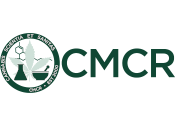| Title: | Cannabidiol (CBD) Treatment for Severe Problem Behaviors in Autistic Boys: A Randomized Clinical Trial |
| Authors: | Doris Trauner, Anya Umlauf, David J. Grelotti, Robert Fitzgerald, Andrew Hannawi, Thomas D. Marcotte, Caitlin Knight, Lauren Smith, Gisselle Paez, Jennifer Crowhurst, Alyson Brown, Raymond T. Suhandynata, Kyle Lund, Marlen Menlyadiev & Igor Grant |
| Year: | 2025 |
| Journal: | Journal of Autism and Developmental Disorders |
In the first placebo-controlled trial of purified cannabidiol (CBD) for autism, researchers from the CMCR at UC San Diego and Rady Children’s Hospital in San Diego investigated whether CBD could safely reduce severe behavioral problems in autistic boys aged 7–14. Thirty-nine participants completed at least one phase of the 20-week crossover study. Each child received both CBD (up to 20 mg/kg/day) and placebo for 8 weeks, separated by a washout period.
CBD was well tolerated, with no serious treatment-related adverse events. Primary outcomes included changes in the Repetitive Behavior Scale-Revised (RBS-R), Child Behavior Checklist (CBCL), and Autism Diagnostic Observation Schedule-2 (ADOS-2). Both groups showed improvement on the RBS-R and CBCL. When compared directly, the RBS-R Total Score favored CBD but did not reach statistical significance (Cohen’s d = −0.44; 95% CI: −0.96, 0.07; p = 0.095). CBCL Total Scores also improved in both groups, with no significant between-group difference (d = 0.30; 95% CI: −0.23, 0.83; p = 0.269). ADOS-2 scores improved only in the placebo group (d = −0.70; 95% CI: −1.20, −0.21; p = 0.007), although this effect disappeared after adjusting for concomitant medications; differences between treatment arms were not statistically significant (p = 0.115). Despite these null findings, many of the endpoints favored CBD without reaching statistical significance, and clinician observations suggested that 68% of participants showed meaningful behavioral improvements while on CBD. A strong placebo effect was observed, underscoring the need for blinded, controlled designs.
This study suggests that CBD may benefit a subset of children with autism who have severe behavioral challenges. Larger studies with more sensitive outcome measures are needed to confirm efficacy and clarify which children are most likely to benefit.
Read the full study here.
Citation: Trauner, D., Umlauf, A., Grelotti, D.J. et al. Cannabidiol (CBD) Treatment for Severe Problem Behaviors in Autistic Boys: A Randomized Clinical Trial. J Autism Dev Disord (2025). https://doi.org/10.1007/s10803-025-06884-y
